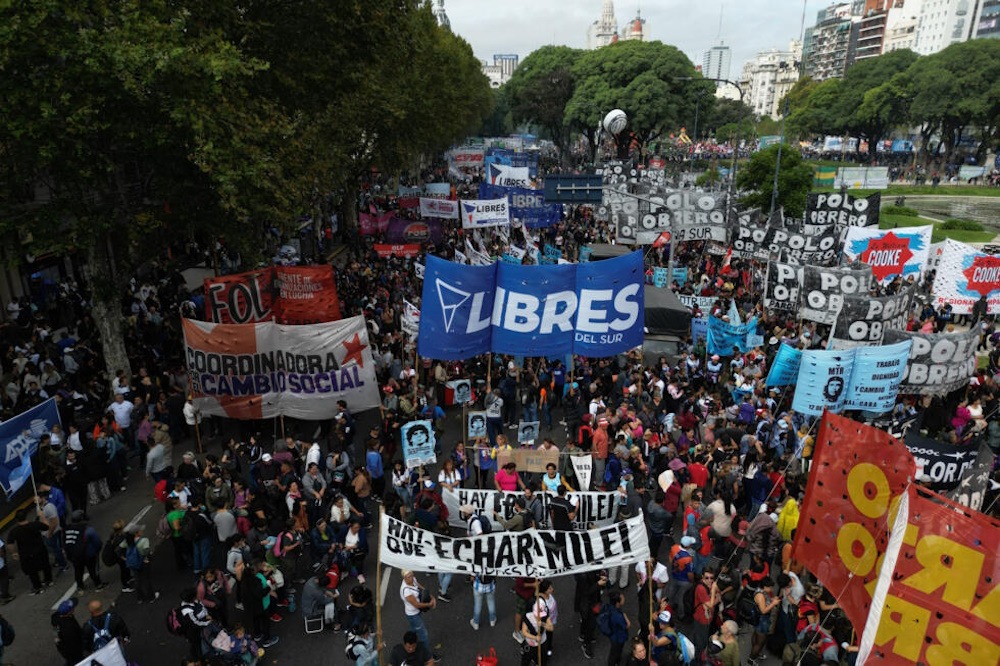The court has suspended Milei’s decree that restricts the right to strike following a challenge from labor groups. A labour court in Argentina has put a hold on a portion of a decree from President Javier Milei that limited the right to strike and broadened the definition of “essential services” necessary to ensure operations during industrial actions. The ruling affirmed an injunction submitted by the Confederación General del Trabajo (CGT), the largest trade union federation in Argentina. The ruling was delivered by Judge Moira Fullana of the National Labour Court No. 3, who recognized the formal viability of the CGT’s legal challenge and issued a precautionary measure to suspend the effects of the decree.
The court’s jurisdiction in the matter was affirmed, permitting the current strike legislation to remain effective as the wider constitutional challenge is evaluated. The court has mandated “to grant the requested precautionary measure and provisionally suspend the effects of Articles 2 and 3 of Emergency Decree 340/25,” which was signed and issued by Milei two weeks ago. Before the decree, essential services encompassed healthcare, hospitals, energy, water supply, and air traffic control. The recent regulatory amendments, as outlined in Articles 2 and 3, have expanded the scope to include maritime and river transport, port and customs services, education, telecommunications, among other sectors. A new category of activities deemed of “transcendental importance” was established, encompassing passenger transport services, construction, and certain gastronomic services.
According to the decree, essential services were mandated to maintain operations at 75 percent capacity, whereas those classified as of transcendental importance were instructed to function at 50 percent. Previously, those levels were established through a consensus-driven process. The decree states that non-compliance may lead to unions encountering fines, sanctions, or potentially losing their legal status. The measure has drawn significant backlash from rights organizations, prominent local trade unions, labor attorney associations, and legal scholars, who contend that it infringes upon the right to strike.
The CGT expressed approval of Monday’s ruling in a statement, asserting it would “continue to fight the battles necessary to guarantee and protect workers’ rights.” The court underscored that any alteration to the right to strike, as enshrined in Article 14 bis of the National Constitution, necessitates a parliamentary discussion. The CGT contended that both chambers of Congress are presently in ordinary session, thereby undermining any assertion of necessity and urgency needed to validate emergency legislation. The ruling referenced established precedent from the Supreme Court, indicating that vague allusions to economic crises do not meet the threshold required to circumvent constitutional protocols.
Rodolfo Aguiar, general secretary of the Asociación de Trabajadores del Estado (ATE) state-workers union, expressed satisfaction with the decision. “The anti-strike decree has been halted,” he stated, noting that the ruling indicated “there are still remnants of democracy in our nation.” Aguiar characterized the decree as an infringement on fundamental rights, asserting that the Milei administration is attempting to “set us back a hundred years.” He further contended that the Executive branch had not substantiated any authentic emergency warranting the circumvention of Congress.
Upon assuming office in December 2023, Milei enacted a comprehensive decree that encompassed a labor chapter featuring identical measures. In August 2024, the domestic courts suspended it, citing unconstitutionality as the basis for their decision. The Supreme Court is anticipated to examine the issue at hand. Since Milei’s inauguration, the CGT along with other prominent trade union federations has organized three general strikes, with the latest occurring on 10 April.

